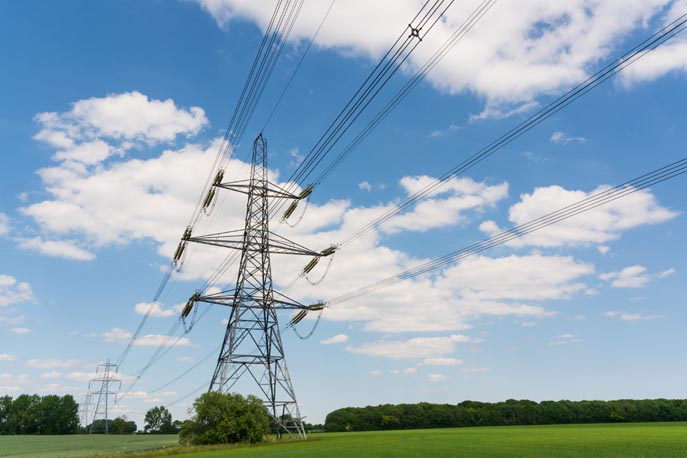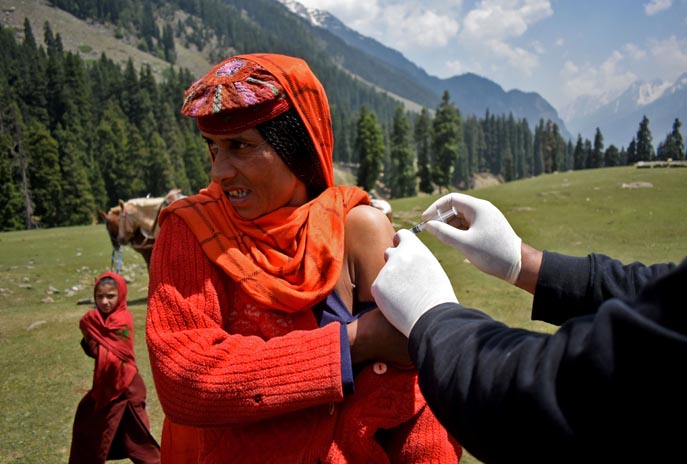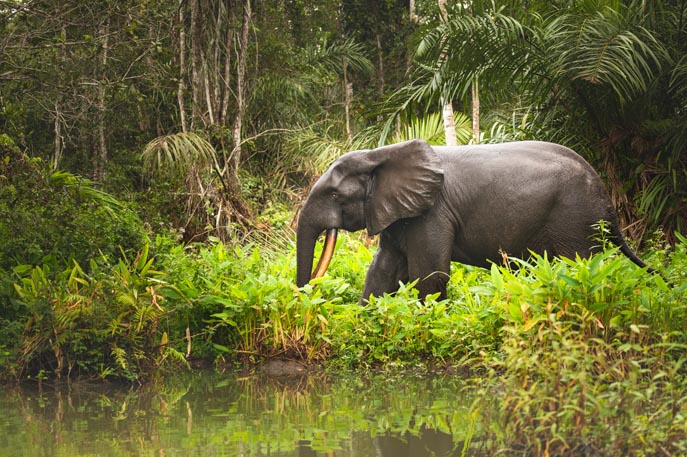Angeli Mehta assesses progress at the G7 leaders’ meeting amid growing calls for the COP26 host to urgently step up domestic action
Much has been promised this year when it comes to tackling climate change: can governments deliver on their pledges?
The question is particularly pressing for the UK. The host of COP26 needs to demonstrate leadership by coming up with the policies and finance to meet its net-zero commitment. In the same week parliament voted into law the UK’s sixth carbon budget, with the goal of cutting emissions 78% by 2035, its climate advisors warned that time is running out to deliver.
The Climate Change Committee (CCC), which set the emissions reduction target, has produced a series of reports that are damming in their assessment of progress.
“Global Britain has to prove that it can lead a global change in how we treat our planet. Get it right and UK action will echo widely. Continue to be slow and timid and the opportunity will slip from our hands. Between now and COP26 the world will look for delivery, not promises,” said Lord Deben, the CCC’s chair.
The CCC points to a year of “climate contradictions”, with a dearth of policy to back up ambitious goals on offshore wind, tree-planting, hydrogen and transport. Yet to materialise are the Treasury’s net-zero review of costs and investments required, as well as a net-zero strategy itself.
I think we have to accept that the government is not as focused on this as it should be
So far, the UK’s progress in cutting emissions has mainly been achieved through decarbonisation of the power sector. The CCC makes over 200 policy recommendations to extend progress to the rest of the economy, from buildings to manufacturing to food, as well as engaging the public in the endeavour.
But global warming will continue to impact us all, regardless of how much action nations take to cut emissions. The CCC warns that efforts to adapt have not kept pace with the rate at which the climate is changing, and that without adaptation “there is a risk of failing on net zero”.
Chief executive Chris Stark was blunt when he said there was a “wilful reluctance to factor [adaptation] into policymaking. I think we have to accept that the government is not as focused on this as it should be – because it’s hard, because it doesn't fit with the political cycle; because it doesn’t have the glamour of net-zero attached to it.”
He said the committee had been alerting the government to issues such as overheating in buildings for more than a decade. Action was urgently needed on building the resilience of the electricity system, given its increasing importance with decarbonisation.

Some 20% of the UK’s emissions reductions will come from nature-based solutions, but the right trees have to be planted in the right places; and government plans to restore upland peat areas touch just a fraction of what needs to be restored. Without full restoration, there’s a danger that peatlands could collapse, impacting not only flood management and biodiversity but risking net zero.
Adaptation was also a Cinderella issue during the G7 meeting of industrialised nations hosted by the UK last month. A final communique promised adaptation communications (as mandated under the Paris agreement) would be submitted “as soon as possible”.
Across the board, campaigners expressed disappointment at the lack of concrete timelines on domestic coal phase-out and transition to zero-emission vehicles, and the provision of just a fraction of the vaccines required to provide global coverage by next year. However, there was consensus on cutting emissions by 50% by 2030 – critical if there’s to be any hope of keeping warming to 1.5 degrees.
The leaders called on multilateral development banks and funding agencies to publish, before COP26, a plan and a date by which all their operations will be aligned with the goals of the Paris Agreement. Earlier, G7 finance ministers supported mandatory reporting of climate risk and a baseline global reporting standard for sustainability.
Stepping up commitments
Climate financing still falls short of what’s required by developing nations, especially as they wrestle with Covid-19. The G7 members promised to mobilise public and private resources to reach $100bn a year of climate finance for developing nations “through to 2025”. A pledge in 2009 to reach this figure by 2020 is unlikely to have been achieved, and there’s no agreement on how any funds should be shared between emissions reduction and adaptation efforts.
Germany and Canada did increase their commitments, but the next opportunity for more ambition from other nations won’t come until heads of government meet at the UN General Assembly in September.
“That is the moment when a vast majority of the G7 will have to step up their climate financing. They’ll have to bring additional clarity around how, and how many vaccines they’re going to be mobilising, and put some actual money behind the [U.S.-initiated] Build Back Better for the World initiative, which in and of itself is very much needed,” says Jennifer Tollmann senior policy advisor on climate diplomacy and geopolitics at thinktank E3G.
The initiative launched at the summit, known as B3W, aims to “help narrow” the $40tn infrastructure needed in the developing world by using funding from G7 multilateral development banks to catalyse private sector investment in four focus areas: climate, health, digital technology and gender equality.

A Kashmiri shepherd receives a Covid jab – the G7 has been urged to clarify how global vaccination will be mobilised. (Credit: Sanna Irshad Mattoo/Reuters)
“There’s a lot of contention right now around what is climate finance and what is broader finance for the green transition – the infrastructure investments, the work with the private sector and with multilateral development banks – that’s the big systemic stuff,” Tollmann said. A $650bn allocation of the IMF’s special drawing rights is expected in the autumn, which would provide access to capital for low-income countries.
“It'll be really important to see how that gets supported and how quickly technicalities are overcome (which they can be, with political will); and how much goes to vaccines and to post-Covid recovery.”
The International Energy Agency’s (IEA) executive director Fatih Birol says a “critical faultline” in meeting climate targets lies in the disparity in investment in clean energy in developing nations, which amount to just 20% of the sums invested in industrialised countries.
We have to trust that the countries want to change – and they will change if we give them the opportunities
While the cost of reducing emissions in those countries is half that in developed nations, the cost of capital is far higher. The IEA estimates that investment needs to increase from $150bn to $1tn annually. Portugal’s minister for environment and energy transition, João Pedro Matos Fernandes, told an FT conference that it had to be made easier to finance African nations through the Green Climate Fund. “It’s really hard to fulfil the requirements. We have to reduce the overheads and trust that the countries want to change – and they will change if we give them the opportunities.”
The unmet $100bn pledge also cast a shadow over virtual climate talks aimed at laying the groundwork for COP26. In a comment piece for Reuters, Saleemul Huq, director of the International Centre for Climate Change and Development, said the commitment should be honoured before November’s COP26, otherwise “there is little point in climate-vulnerable nations showing up in Glasgow to do business with governments that break their promises”.
Three weeks of virtual summitry were plagued by technical issues, while entrenched positions couldn’t be tackled over coffee, as they would in an in-person event.

NASA has warned that the Earth is trapping almost twice as much heat as it did in 2005. (Credit: Fabrizio Bensch/Reuters)
However, E3G’s Tollmann noted that online talks on biodiversity ahead of a crucial summit in Kunming in October had managed to agree negotiated texts while “more or less the exact same set of countries [during the UN climate talks] had certain regional groupings refusing to even consider formal decisions coming out of this virtual format”.
The UK is determined that COP26 will happen in-person and has promised to work with the UN to help delegates access vaccines.
Having pitched infrastructure funding for the developing world, President Biden is trying to get his own domestic priorities over the line. Negotiations on infrastructure spending reached a rare compromise with a $973bn deal over five years – about $1tn less than the president first proposed. There’s no money for direct subsidies for the purchase of electric vehicles, but $7.5bn for a nationwide network of charging stations, the same again for electric buses, support for public transport and $73bn for power infrastructure. However, the deal is not yet done. It depends on a political balancing act as the Democrats also try to push through a far larger spending bill that could deliver more immediate action on climate change.
Financing deforestation in the Congo Basin
Gabon, on the west coast of Africa, does seem to have delivered on a commitment on deforestation. It was rewarded with the first $17m (out of $150m), for reducing deforestation and hence its carbon emissions in 2016 and 2017, compared with the previous 10 years. The first payment is from Norway, which has verified the forest cover, and is one of the six donors to the Central African Forest initiative (CAFI). CAFI aims to help central African nations build their economies while protecting biodiversity and the old growth forest that stretches across the Congo Basin. The forest and deep peat stores lock up about 10 years’ worth of global emissions, a webinar heard. “Scientists are telling us that we only have 10 years to act in terms of climate change. So if we lose the Congo Basin, we lose the fight against climate change,” Gabon’s environment minister Lee White said.
Despite being the world’s second-largest rainforest, one analysis suggests that between 2008 and 2017, the Congo Basin received a third of the international finance for nature protection and sustainable forest management that went to the Amazon. There, deforestation has continued apace, and talks between Brazil and the U.S. over funding to preserve the biome have seemingly stalled.

A forest elephant in Gabon, a country that has succeeded in reducing deforestation. (Credit: Shutterranger/Shutterstock)
Whether the recent resignation of Brazil’s environment minister, who’s accused of colluding with illegal loggers to export timber from the Amazon, will re-energise the talks remains to be seen.
Gabon stores more carbon than it emits, and White wants it to be able to make sales of carbon credits either through the LEAF coalition, a public-private platform that aims to channel carbon-offsetting finance into saving tropical forests, backed by the U.S., UK and Norway, or whatever system emerges from discussions at COP26. (See Can corporates’ net-zero drive help put tropical countries on rapid road to ending deforestation)
As the wrangling over climate finance continues, NASA warns that the Earth is trapping almost twice as much heat as it did in 2005 – an increase its researchers describe as “unprecedented”. This energy imbalance is a function of human activity and natural climate variability, but the researchers say that unless the rate of heat uptake is reduced, we can expect bigger changes in climate than are already occurring.
This article is part of the July issue of the Sustainable Business Review. See also:
Brand Watch: Amazon under fire for incinerating unsold stock and dodging ESG investors
ESG Watch: Insurers and airlines begin to feel the heat over climate risk
Can Big Ag turn from climate crisis villain to sustainability paragon?
Why Tesla now has Volkswagen and other auto majors in its rear-view mirror
G7 COP26 Climate Change Committee global warming Paris Agreement Covid-19 pandemic vaccinations Build Back Better E3G IEA deforestation Gabon biodiversity loss

